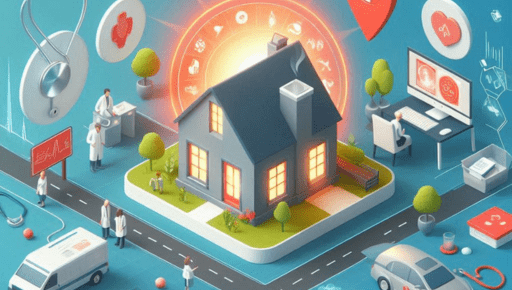Primary care providers play a key role in managing HIV/AIDS. They offer support, routine care, and early detection. In the context of general practice medicine glen burnie, primary care ensures patients receive holistic care. They coordinate with specialists and focus on the patient’s overall well-being. Early intervention and continuous management can improve quality of life. My aim is to outline how primary care supports those with HIV/AIDS effectively.
Key Responsibilities of Primary Care Providers
Primary care providers are the first point of contact for many patients. They handle a variety of tasks that are vital for managing HIV/AIDS:
- Diagnosis and Testing: Early diagnosis is crucial for effective treatment. Regular testing helps in identifying HIV at stages where it is easier to manage.
- Coordinated Care: They work with specialists to create a comprehensive care plan. This ensures that all aspects of a patient’s health are addressed.
- Patient Education: Educating patients about HIV/AIDS is a core duty. It empowers patients to make informed decisions about their health.
Benefits of Early Diagnosis and Routine Care
Early diagnosis of HIV can change the treatment outcome significantly. When detected early, patients can start antiretroviral therapy (ART) sooner. This helps in maintaining a stronger immune system and reducing the risk of spreading the virus. Routine care includes regular visits and tests, which help in monitoring the patient’s health status and the effectiveness of ART. According to the Centers for Disease Control and Prevention, early intervention can improve life expectancy and quality of life.
Holistic Approach in Primary Care
A holistic approach considers the entire well-being of the patient. This includes mental health, nutrition, and lifestyle changes. Primary care providers often guide patients in managing stress, improving diet, and encouraging exercise. Mental health support is critical, as living with HIV/AIDS can be challenging. Regular counseling sessions and support groups can make a significant difference.
Coordination with Specialists
Primary care providers coordinate with various specialists to offer comprehensive care. This team usually includes:
- Infectious Disease Specialists
- Nutritionists
- Mental Health Counselors
This teamwork ensures that each aspect of the patient’s health is covered. Effective communication among healthcare providers is essential for smooth management of HIV/AIDS.
Comparison of Care Models
| Care Model | Description | Benefits |
| Primary Care-Centric | Managed by a primary care provider with specialist referrals as needed. | Offers a holistic view and continuous monitoring. |
| Specialist-Focused | Involves direct care from specialists with minimal primary care involvement. | Focused expertise in specific areas of HIV/AIDS. |
Challenges and Solutions
Managing HIV/AIDS involves several challenges. These include stigma, medication adherence, and access to care. Primary care providers can address these by fostering an environment of trust and openness. They can assist patients with accessing resources and support systems. Education plays a key role in overcoming stigma and encouraging adherence to treatment. As noted by the World Health Organization, community support and patient education are powerful tools in HIV/AIDS management.
Conclusion
Primary care providers are a cornerstone in the effective management of HIV/AIDS. By focusing on early diagnosis, coordinated care, and patient education, they improve the lives of those affected. Their holistic approach ensures that patients receive comprehensive care, addressing both physical and mental health needs. With ongoing challenges, their role remains critical in advancing HIV/AIDS management strategies.

